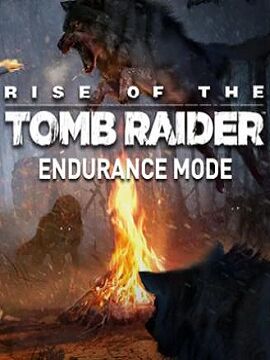
Brand
- Fruit Of The Loom 8.820
- MTP Products 6.011
- M&S Collection 4.601
- Gildan 2.325
- B&C Collection 1.676
- Vale 1.580
- Steam 1.306
- Sealey 1.191
- Portwest 1.049
- Kennedy 960
- Russell 890
- Selfmade 884
- Sitesafe 848
- Harry Corry 805
- AWDis Just Cool 764
- YOKO 735
- Cheapest Fabrics UK 712
- B&C 648
- Faithfull 645
- Beechfield 627
- Ace & K 614
- Posters Online - Postery.com 610
- Stedman 599
- Forgefix 592
- Winsor & Newton 565
- RS PRO 549
- Maxim Integrated 521
- Kreul 507
- Securit 501
- Microchip 494
- Amtech 475
- Perkupyourday 457
- Puckator 439
- METALMATE 436
- Dunlop BTL 431
- Sherwood 428
- 13093 421
- Blue Spot Tools 419
- ORN 409
- Molex 397
- Analog Devices 394
- Beeswift 383
- Westford Mill 369
- Imak 367
- Spectrum Industrial 357
- AWDis Just T's 351
- Bosch 344
- Babybugz 343
- TopVue 341
- CONNECT 339
- Build Your Brand 332
- CraftifulOils 332
- Wurth Elektronik 332
- Co 328
- Qualfast 327
- Mobility Smart 324
- Cypress Semiconductor 322
- Zoro Select 317
- 3M 308
- BPLAS 307
- Dale Garn 298
- Kennedy-Pro 294
- Beaumont 287
- Unibos 286
- Lasting Impressions 283
- TE Connectivity 278
- Q-Connect 261
- Liquitex 254
- YouGarden 251
- Iscar 250
- Ansell 247
- Liverpool FC 247
- Phoenix Contact 245
- Schmincke 245
- Dart 243
- DeWalt 243
- Medway 243
- STMicroelectronics 241
- PEARL CONSUMABLES 237
- Stanley 237
- IWTBAG 230
- SKF 229
- Irwin 225
- Yoko 224
- SupaDec 219
- Moderix 218
- Dormer 215
- Pro RTX High Visibility 211
- Silverline 211
- Just Ts 210
- AUTOWAVE 206
- Hunter 206
- Russell Pure Organic 203
- Du Store Alpakka 200
- FRAYA 200
- Russell Europe 197
- Merkel Designers 192
- Texas Instruments 192
- Tech-Protect 189
- Regatta High Visibility 187
Colour
- Black 6.813
- White 3.937
- Transparent 2.331
- Red 1.936
- Blue 1.877
- Grey 1.238
- Green 1.189
- Yellow 1.129
- Navy 942
- Orange 892
Size
- XL 3.235
- 2XL 2.854
- Medium 2.784
- Large 2.748
- Small 2.654
- 3XL 1.517
- XS 1.199
- one size 997
- One Size 809
- O/S 731
Gender
Merchant
- Zoro UK Limited 56.753
- MyTrendyPhone.co.uk 7.638
- RS Components UK 7.098
- Marks & Spencer UK 5.862
- Workwear Supermarket 4.826
- K4G.COM 3.464
- Plusshop UK [OLD] 3.218
- Selfmade.com 2.852
- Cowling & Wilcox 2.379
- Home Done 2.019
- Erysta 1.685
- uk.plusshop.com 1.606
- Gordons Direct 1.107
- Car Smart 884
- Building Plastics Online 853
- QD Stores 842
- Harry Corry 805
- fabrics313 744
- Craigmore UK 689
- Mobility Smart 630
- Postery.com 610
- Onlynaturals 574
- Glisshop uk 500
- Cherry Lane 469
- Perk Up Your Day 457
- Perfect Little Thing 443
- Puckator.co.uk 439
- Alensa.co.uk 425
- JustHype UK 421
- Craftiful Fragrance Oils 390
- Acorn Fire & Security 353
- Care Lineage 329
- Unibos Store 286
- Epoka AS 270
- Suit Direct 270
- Nicotine Pouches 263
- Posted Protein 256
- YouGarden 251
- Liverpool FC 247
- I want to buy a gift 230
- Pants & Socks 229
- Ace Fixings 220
- Tosoni Selleria 215
- Vivomed 193
- Ottershaw Cacti 189
- PVC Cladding 162
- uk.bazta.com 161
- BPerfect Cosmetics UK 159
- havens.co.uk 154
- Argento 143





















